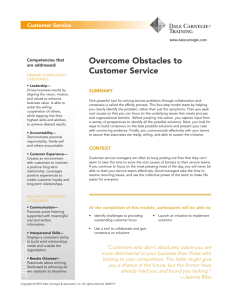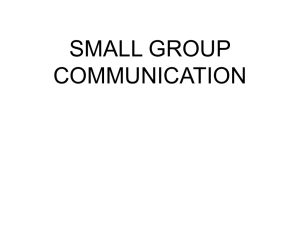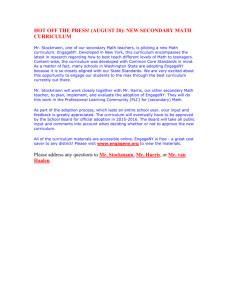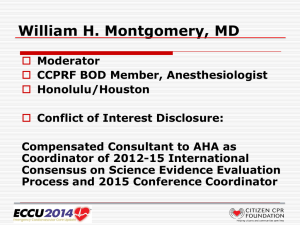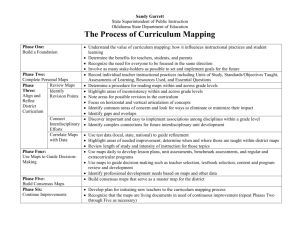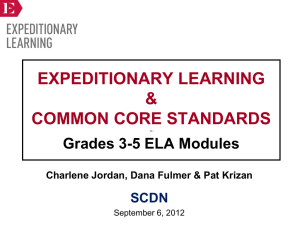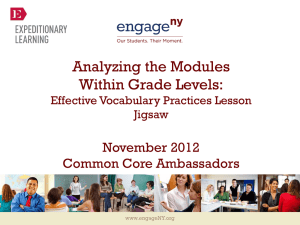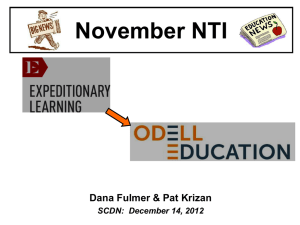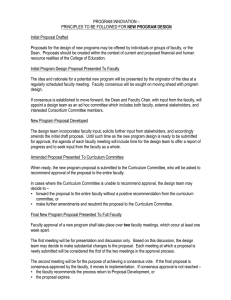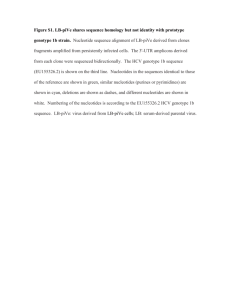building a high performing instructional leadership team
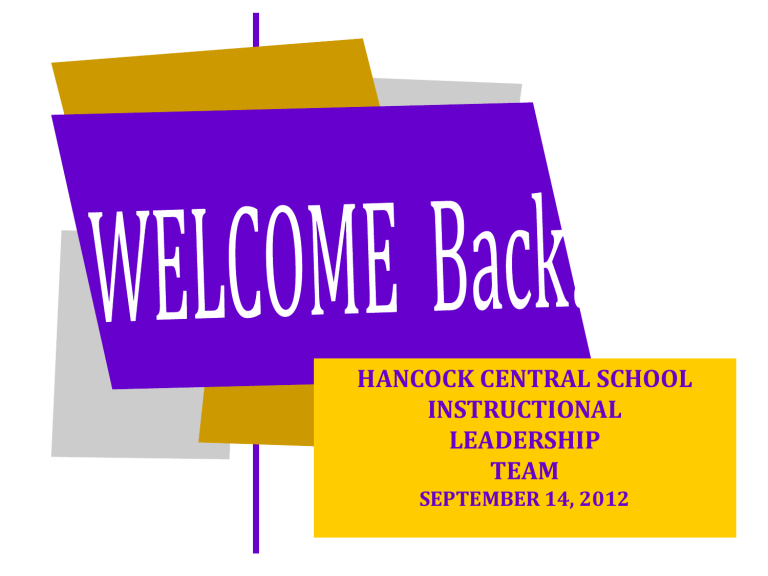
HANCOCK CENTRAL SCHOOL
INSTRUCTIONAL
LEADERSHIP
TEAM
SEPTEMBER 14, 2012
Building on our Success
Organization, Process, and Focus
AGENDA
Welcome and Opening
Characteristics of High Performing Teams
Establishing Team Norms
Reflecting on Beliefs
Creating Focus
Operational Expectations
Looking Ahead 2012-13—Developing the Plan of Action
http://vimeo.com/user7931682
BUILDING A HIGH PERFORMING
INSTRUCTIONAL LEADERSHIP TEAM
Organization, Process, and Focus
Purpose: To enhance the use of high performing leadership teams as a contributing structure towards a culture of high expectations….
By: Drawing on the rich experience of each member
Engaging members through a variety of structures
Using current research and resources on collaboration, teaching and learning, and compliance
Think of a team you have served on that you consider highly effective, very rewarding, and memorable?
WHAT MADE IT THAT WAY?
When we serve as a TEAM, there are BENEFITS for the:
• members
• Team
• school district
• CHILDREN
CHARACTERISTICS of
HIGH PERFORMING TEAMS
A SYNTHESIS OF THE LITERATURE
• The team shares common vision, mission, goals and is committed to achieving them. Members understand why the team exists and are dedicated to accomplishing goals.
• The team creates an informal , comfortable climate of TRUST.
• Everyone accepts responsibility for participating.
• Communication is open. There are few hidden agendas.
Members listen well. Ideas are accepted without criticism.
• Individuals are VALUED as unique resources. Differences in style are celebrated as benefits to a high performing team.
Diversity of opinions, ideas, and approaches are encouraged.
Flexibility and sensitivity are recognized as necessary and are
practiced.
CHARACTERISTICS of
HIGH PERFORMING TEAMS
• Conflict and disagreement are viewed as healthy and natural— they are surfaced, not avoided, with an emphasis on resolution, not on personalities.
• Decisions are reached through consensus .
• Roles and responsibilities are clearly defined, distributed, and carried out. Leadership is shared.
• The team works with the larger organization and is responsive to external (and internal) change.
• The team regularly “self assesses,” seeking to improve itself by examining processes, practices, and results. An attitude of continuous improvement prevails.
• Team members create a climate where successes are celebrated.
Forming
Norming
Storming
Performing
RULES,
GUIDELINES,
STANDARDS,
THAT GOVERN GROUP
INTERACTION . . .
Be child-centered
Bring positive energy to the task
*Maintain professional responsibility and integrity
Work collaboratively to reach consensus
*Be prepared; review materials; represent your colleagues; be informed; be on time; avoid side conversations
Building a Culture For High
Expectations
To improve student learning through rigorous study, focused collaboration, and implementation of:
Professional Development
Common Core Learning Standards
Evaluation Systems
Data Driven Instruction
Curriculum— www.engageny.org
http://engageny.org/resource/yearlong-draft-curricular-maps-in-elaand-mathematics/ http://engageny.org/news/nyscommon-core-k-8-social-studiesframework-is-now-posted-for-publicreview-and-comment/
Instruction—Network team visit
Learning Objectives
Active Engagement of all Learners
Gradual Release of Responsibility
(GRRM)
Monitoring/Checking for
Understanding
Formative and Summative
Assessment
Questioning
Differentiation
CONSENSUS…
TOWARDS A COMMON, WORKING DEFINITION
“YOU MIGHT HAVE CONSENSUS IF”…
• All group members contribute/participate
• Everyone's opinion is heard and encouraged
• Differences are viewed as helpful
• Everyone can paraphrase the issue
• Those who disagree seek to understand
• All members agree to support the final decision
• All members take responsibility for implementation
• All members seek the success of the decision
CONSENSUS DOES NOT MEAN…
• A unanimous vote
• The decision is everyone’s first choice
• Everyone agrees
• Resistance will be overcome
• Minds will change
FREQUENCY OF MEETINGS
First Wednesday: 10/3 11/7 12/5 1/2 2/6 3/6 4/3 5/1
LENGTH OF MEETINGS
AGENDA
Collaboratively designed
MEMBER RESPONSIBILITY
Runs the meeting
Plans Process aligned with agenda
Gives good directions
Keeps group feeling smart
Monitors process
Is committed to process
Refocuses team as needed
Checks for balanced participation
Handles blockers with skill
Paces the team
N E U T R A L OR N O T?
The beaver is very skilled at its craft.
It knows exactly what to do to fix a dam.
The last thing it needs is someone on the bank shouting out dam instructions.
-Author unknown
Professional Development
Offerings
Next meeting: Wed, 10/3 at 2:30
PM
Between now and then

